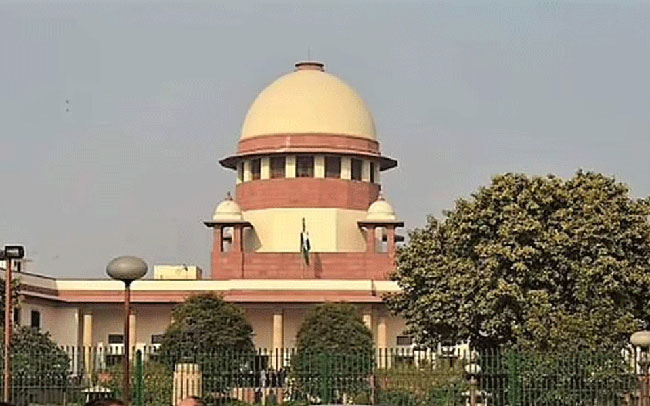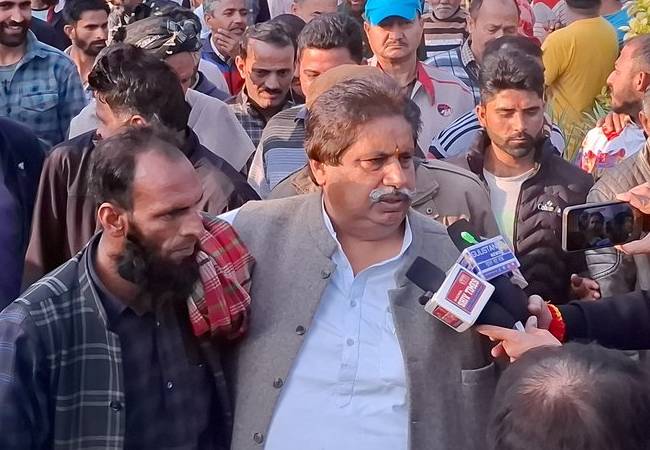New Delhi: In a significant ruling, the Supreme Court of India observed that it is the obligation of governments to impart sex education and raise awareness about the Protection of Children from Sexual Offences (POCSO) Act. The Court, while interpreting the Act, stressed on the importance of creating a compassionate approach towards victims of child sexual abuse.
A bench comprising Chief Justice of India DY Chandrachud and Justice JB Pardiwala clarified that the responsibility of the appropriate governments and commissions under Sections 43 and 44 of the POCSO Act extends beyond mere awareness about the provisions of the Act. "We are of the considered view that the obligation of the appropriate government and the commission under Section(s) 43 and 44 of the POCSO respectively, does not end at just spreading awareness about the provisions of the POCSO," the Court stated.
Section 43 obligates both the Central and State Governments to ensure that the Act is widely publicized through various media platforms at regular intervals. This includes creating awareness among the general public, children, parents, and guardians. Additionally, Section 43 mandates proper training for government offices, such as the police, to ensure effective implementation of the Act's provisions.
Similarly, Section 44 entrusts the National Commission for Protection of Child Rights (NCPCR) and State Commissions for Protection of Child Rights with the responsibility to monitor and assist in the implementation of the Act.
The Court stressed the need for a sensitive and compassionate societal approach towards victims of child sexual abuse. "By fostering a compassionate and understanding society, we can help them find their path to recovery and regain a sense of safety, dignity, and hope. This includes changing societal attitudes towards victims, improving legal frameworks to protect them, and ensuring that perpetrators are held accountable," the judgment read.
The ruling further highlighted the necessity of sex education in schools and other educational institutions to address child abuse, exploitation, and addiction to pornography. "As a natural corollary, the obligation of the appropriate government and the commission under the aforesaid provisions will also entail imparting of sex education and awareness amongst the general public, children as well as their parents and guardians, particularly in schools and places of education," the bench observed.
In another critical interpretation, the Court ruled that the mere storage of child sexual exploitative material (child pornography) without deletion or reporting indicates an intention to transmit it. Moreover, watching such material without downloading it amounts to possession under the POCSO Act.
Let the Truth be known. If you read VB and like VB, please be a VB Supporter and Help us deliver the Truth to one and all.
Ranchi (PTI): A 25-year-old man, who works as a butcher, allegedly strangled to death his live-in partner and chopped her body into 40 to 50 pieces in a forested area in Jharkhand’s Khunti district, police said on Wednesday.
The accused, identified as Naresh Bhengra, was arrested.
The matter came to light after around a fortnight after the killing when a stray dog was found with human body parts near Jordag village in Jariagarh police station on November 24.
Bhengra was in a live-in relationship with the deceased, a 24-year-old woman also from Khunti district, in Tamil Nadu for the past couple of years. Sometime back, he returned to Jharkhand, got married to another woman without telling his partner anything and went back to the southern state without his wife to join her.
"The brutal incident occurred on November 8 when they reached Khunti as the accused who had married another woman did not wish to take her home. Instead, he took her to a forest near his house at Jordag village in Jariagarh police station and chopped the body into pieces. The man has been arrested," Khunti Superintendent of Police Aman Kumar told PTI.
Inspector Ashok Singh who investigated the case said the man worked in a butcher shop in Tamil Nadu and was expert in slicing chicken.
“He admitted chopping the body parts of the woman into 40 to 50 pieces before leaving those in the forest for wild animals to feast on. The police recovered several parts on November 24 after a dog in the area was seen with a hand," Singh told PTI.
Singh said that the woman, who was unaware of his marriage, pressured him to return to Khunti. After reaching Ranchi, they boarded a train on November 24 and headed to the man's village.
"Under a plan, the man took her to Khunti in an autorickshaw near his home and asked her to wait. He returned with sharp weapons and strangulated her with her dupatta after raping her. He then cut the body into 40 to 50 pieces and left for his home to live with his wife," Singh said.
The woman, however, had informed her mother that she had boarded a train and would be living with her partner, the police officer said.
Following the recovery of body parts, a bag was also found in the forest with the murdered woman's belongings including her Aadhaar card. The mother of the woman was called at the spot and she identified her daughter's belongings.
"The mother suspected the man behind the crime who after being nabbed by the police admitted to chopping the woman into pieces," the official added.
The incident has sent shockwaves among people in the region, with the Shraddha Walker murder case of 2022 still fresh in their memory.
Walker was killed by her live-in partner who chopped her body into pieces before dumping them in the jungle in South Delhi’s Mehrauli.





